License Defense Lawyers for Mental Health Professionals in Austin and Houston, TX
Texas Mental Health Professionals License Defense Attorneys

If you are a counselor or a social worker and have been charged with a professional impropriety that could ultimately cost you your job and your license, you are likely concerned. You might worry about protecting your good name and your ability to continue helping people. The best way to defend your professional license and practice is to speak with our license defense lawyers for mental health professionals.
At the Leichter Law Firm, we understand your concerns and the challenges you are facing, and we may be able to help. Our dedicated Texas mental health professionals license defense attorneys have a history of providing people in your position with the legal protection they need. If you are a marriage and family therapist, professional counselor, or social worker, and you are concerned about protecting your license, please contact us today by calling 512-495-9995.
The Texas administrative law attorneys at the Leichter Law Firm PC are experienced in the arena of professional license defense and regularly appear before administrative boards that fall under DSHS in the service of their professional licensee clients. Leichter Law Firm attorneys represent mental health professionals under boards like the Texas Board of Examiners of Marriage and Family Therapists, the Texas Board of Examiners of Professional Counselors, and the Texas Board of Examiners of Social Workers, among others.
The Texas Board of Examiners of Professional Counselors
Each professional board under DSHS has its own operating statutes passed by the Legislature and its own Board rules, issued by their respective boards.
The Texas Board of Examiners of Professional Counselors’ statutes are found in Texas Occupations Code, Chapter 503, and their rules and regulations are found in Title 22, Texas Administrative Code, Chapter 681.
When the professional board believes that a licensee has engaged in conduct prohibited by these statutes and rules, an investigation is initiated, and the licensee is given the due process afforded them under these statutes.
The Texas Department of State Health Services (DSHS) is a massive agency that houses many regulatory divisions and professional boards, from athletic trainers to X-ray services. DSHS’s mission statement is similarly broad — “To improve the health and well-being of Texas.”
What Is the Complaint and Investigation Process for Mental Health Professionals?
In the following sections, we outline the process for complaints and investigations of professionals in behavioral health services.
Initiation of Complaint
Board investigations are initiated upon the Board’s receipt of a complaint from a client, law enforcement, a third party, or even an anonymous source. The Executive Director of the Board will facilitate the review and consideration of each complaint. This includes determining that it is jurisdictional and alleges something that is actually a violation of the statutes.
If the complaint is deemed jurisdictional, the Executive Director will often notify the licensee that a complaint has been filed against them, and allow the licensee to respond. The licensee is also asked to provide client records and other relevant information.
The Board’s investigative staff will collect and compile all of the information received about each complaint and use it to prepare an investigative summary of the case. The Executive Director then sends the case to be reviewed by the Ethics Committee.
Investigation
The types of conduct typically investigated range from relatively minor alleged violations to those that are much more serious. Examples include the following.
- Maintaining a dual relationship
- Sexual misconduct
- Criminal conduct
- Impairment due to chemical dependency or mental illness
- Fraudulent billing
- Failure to keep accurate client records
- Violations related to supervision hours
- Release of confidential client information
- Practicing on an expired license
- Unethical/Unprofessional conduct
- Failure to cooperate with the board
- Discipline in another jurisdiction
- Failure to report physical or sexual abuse
Ethics Committee Review
The Board Chair appoints the Ethics Committee. It is tasked with reviewing each complaint, ensuring that complaints are given due consideration, ensuring that the complainant can explain their allegations, and ultimately dismissing complaints that do not warrant action.
The Ethics Committee meets at regular intervals throughout the year- roughly quarterly. These meetings are open to the public. They are typically attended by other licensees who have received a complaint, other interested parties, licensees, and students that need continuing education credits. The licensee is allowed to address the Committee in public sessions and answer any questions the Committee may have. The Committee will vote to either close the matter or, if they believe a violation has occurred, issue a Notice of Violation.
Notice of Violation
A Notice of Violation is sent to the licensee if the Ethics Committee determines that a violation has occurred. The Notice of Violation will give a brief account of the acts or omissions believed to constitute a violation. It will include specific Board statutes and rules believed to have been violated.
The Notice of Violation will also contain the Committee’s recommended discipline and give the licensee 15 days to accept the discipline, reject the discipline, and request an informal conference, or reject the discipline and request a formal hearing. If the licensee makes no response, the Board will initiate default proceedings to implement the proposed discipline.
The Board is authorized to deny, revoke, temporarily suspend, or suspend a license, or may probate disciplinary action, issue a reprimand, or impose an administrative penalty. Each Board has rules setting out their schedule of sanctions, aggravated or mitigated by multiple factors.
Informal Disposition
If the licensee chooses to attend an informal conference, they will be notified by the executive director of the time and place of the conference, with no less than 10 working days’ notice. The conference is attended by the executive director, at least one Board member, and the Board’s legal counsel.
The licensee and their counsel can make a statement and present evidence as appropriate. All Board members, the executive director, and legal counsel may ask questions of the licensee. After the conference, the Executive Director and the Board members can make a recommendation for informal disposition of the case.
Informal disposition could dismiss the matter if it is determined that no violation exists or the Board has no jurisdiction over it. Alternatively, the panel could recommend a lesser sanction.
The recommendation will be reduced to writing in an Agreed Order, including findings of fact, conclusions of law, and the proposed sanctions. The licensee may accept or reject the recommendations made at the informal conference. If the licensee accepts the informal disposition, it will go before the full Board for approval, at which time it becomes effective.
Formal Hearing
If the matter is not resolved informally, either by dismissal or some agreed sanction, the licensee is entitled to a Formal Hearing at the State Office of Administrative Hearings (SOAH). The Board will file a formal complaint, and the licensee will be notified of a hearing date. Both sides will have an opportunity to conduct discovery and file pre-trial motions.
The Board will present its case at trial by introducing evidence and calling witnesses. The licensee will present their defense by introducing their evidence and witnesses. Both sides will present a closing argument either in person or through a briefing.
After the record is complete, the Administrative Law Judge (ALJ) will consider all the evidence and make findings of fact and conclusions of law. The ALJ will send his recommendation to all parties in a Proposal For Decision (PFD) that will go before the Board for their consideration in making a final decision.
Texas Attorneys for Mental Health Professional License Defense
If a licensee is contacted by their licensing Board regarding any disciplinary matter, seemingly large or small, we recommend that you speak with an attorney with experience in license defense of behavioral health practices. Take advantage of a free consultation from the Texas license defense attorneys of the Leichter Law Firm to determine the best course of action.
As DSHS’s mission statement makes clear, the health of Texas is the primary concern of this agency, not the well-being of its licensees. Any agency investigation is adversarial at its heart, and consequently, any communication between licensees and Board staff could be used against the licensee. The utmost care should be taken with any response to a request for information from a licensing Board, which is why many licensees choose to hire experienced counsel to communicate on their behalf.
If you are a mental health services professional who is facing complaints, investigations, or malpractice claims, we strongly recommend seeking legal representation.
What Case Types Does the Leichter Law Firm Handle?
At the Leichter Law Firm, we can assist mental health professionals with the following professional license matters.
- Complaints and investigations with licensing boards
- Applications for mental health professional licenses
- Reporting criminal actions, such as DUI, theft, prescription fraud, billing fraud, and more
- Professional liability and negligence
- Employment issues, such as disciplinary actions
- Substance abuse and self-reporting
- Failing to meet mandated reporter requirements
- Conflicts of interest
- Administrative hearings and appeals
- Boundary problems with patients
- Breaches of confidentiality
What Mental Health Professionals Does Leichter Law Represent?
The attorneys at Leichter Law have extensive experience representing a range of professionals in the mental health sector. We can provide guidance to any of the following mental health professionals.
Licensed Marriage & Family Therapists (LMFT)
Marriage & Family Therapist License Defense: Consistent with the Licensed Marriage and Family Therapists Act (Texas Occupations Code § 502.001 et. al.), the Texas State Board of Examiners of Marriage and Family Therapists have the authority to regulate the practice and licensing of marriage and family therapists (LMFT) in the State of Texas.
The LMFT Board is charged with adopting its own rules, investigating potential infringements of the Act, adjudicating alleged violations, and imposing sanctions, including the revocation or suspension of a therapist’s license.
Under Texas Occupations Code § 502.351 and § 801.292 of the Texas Administrative Code, the Board may discipline a licensed therapist for:
- A conviction for a felony offense or a misdemeanor involving moral turpitude
- Usage of drugs or alcohol to an extent that affects the therapist’s professional competency
- Engaging in sexual contact or intimacies with a current or former client
- Performance of professional duties in a grossly negligent manner or in a manner that is detrimental to the public health or welfare
- Obtainment or an attempt to obtain a license through fraud or deception
- Any other violation of § 502 or a rule issued by the Board
Under § 502, the LMFT Board may issue the following penalties against a license or license holder: an administrative fine, monitoring, public reprimand, license restrictions, probation, suspension, refusal to renew, or even revocation of the therapist’s license.
Licensed Professional Counselors (LPC)
Professional Counselor License Defense: The Texas State Board of Licensed Professional Counselors is charged with regulating the practice of Licensed Professional Counselors (LPCs) pursuant to Texas Occupations Code § 503 et. al.
Under § 503.401 of the Texas Occupations Code and §§ 681.162-681.164 of the Texas Administrative Code, the most common grounds for disciplinary action against a Licensed Professional Counselor or the LPC’s license are:
- Conviction for a felony or certain misdemeanor offenses;
- Drug and alcohol abuse which directly relates to the practice of counseling;
- Sexual Contact with a present or former client;
- Obtainment of a license through fraud or deceit;
- Violation of an ethical rule adopted by the Board.
The Professional Counselors Board may sanction a violation by imposing an administrative fine, issuing a public reprimand, or subjecting a Licensed Professional Counselor’s license to probation, suspension, revocation, or a refusal to renew (Texas Occupations Code § 502 and Texas Administrative Code § 681).
Social Workers
Social Worker License Defense: The Texas State Board of Social Worker Examiners (TSBSWE) regulates the licensure and practice of social workers in Texas (Texas Occupations Code § 505 et. al.). Consistent with § 505.451 of the Texas Occupations Code and § 701 et. al. of the Texas Administrative Code, the Board may discipline a social worker for:
- Felony conviction or commission of a misdemeanor which would indicate an inability or tendency to be unable to perform as a social worker
- Consumption of alcohol or drugs in a manner that would adversely affect the licensee’s ability to perform social work or usage of any illegal drugs
- Provision of false or misleading information while seeking to obtain or renew a license
- Engaging in unethical conduct or other conduct that discredits or tends to discredit the social worker profession
- Improperly directly or indirectly revealing or causing to be revealed confidential client information
- Sexual contact with a current or former client
- Boundary violations and inappropriate dual relationships with Clients
In response to such violations, the Board may impose an administrative fine, issue a public reprimand, place the licensee on probation, or suspend, revoke, or refuse to renew the social worker’s license (Texas Occupations Code § 505 and Texas Administrative Code § 701.601 et. seq.).
What Is the Disciplinary Process for Social Workers?
The disciplinary process begins with a complaint to the Board. Such complaints usually originate from co-workers, current or former clients, or even an angry spouse. Following the complaint, the Board will investigate the allegations (Texas Administrative Code § 781.603). Criminal charges and convictions can also trigger an investigation.
If the Board believes that grounds for disciplinary action are present, they may try to resolve the matter through an informal hearing (§ 781.605). An attorney at this hearing will represent the Board. If the case is not resolved via the informal hearing, the social worker may demand an administrative hearing before a judge at the State Office of Administrative Hearings.
The judge will issue a Proposal for Decision (Texas Occupations Code §505.555). The Board will then enter its final order and, in so doing, does not have to adhere to the Administrative Law Judge’s proposed sanctions.
Do I Need an Attorney for My Case?
Throughout this process, the licensee can and should seek the aid of a lawyer. These proceedings are highly complex and typically involve complicated issues of fact and administrative law. Because the consequences can be severe, it is best for the licensee to obtain the aid of an attorney to help guide and represent them before the Board.
We are often our own worst advocates when our reputation and livelihood are on the line. This is particularly true in cases of chemical dependency or criminal conviction(s), as it is precisely the licensee or applicant’s character itself that is in question.
In situations such as these, a lawyer is better able to present the licensee’s case before the Board. Regardless of the basis for the investigation, the advice and assistance of an experienced attorney can guide a licensed professional through this stressful and complex process and help fight for a positive outcome.
Contact Mental Health Professional License Defense Attorneys in Texas
If you are a mental health professional who may be in jeopardy of losing your license, the Leichter Law Firm may be able to help. Our dedicated Texas mental health professional license defense attorneys can help you. Please contact us today by calling 512-495-9995 to schedule a free consultation about your case.
Get in Touch
Office Locations
1602 E 7th St
Austin, TX 78702
Phone: (512) 495-9995
Get Directions
3700 N Main St
Houston, TX 77009
Phone: (713) 714-2446
Get Directions
214 N 16th St #128
McAllen, TX 78501
Phone: (956) 205-0884
Get Directions


